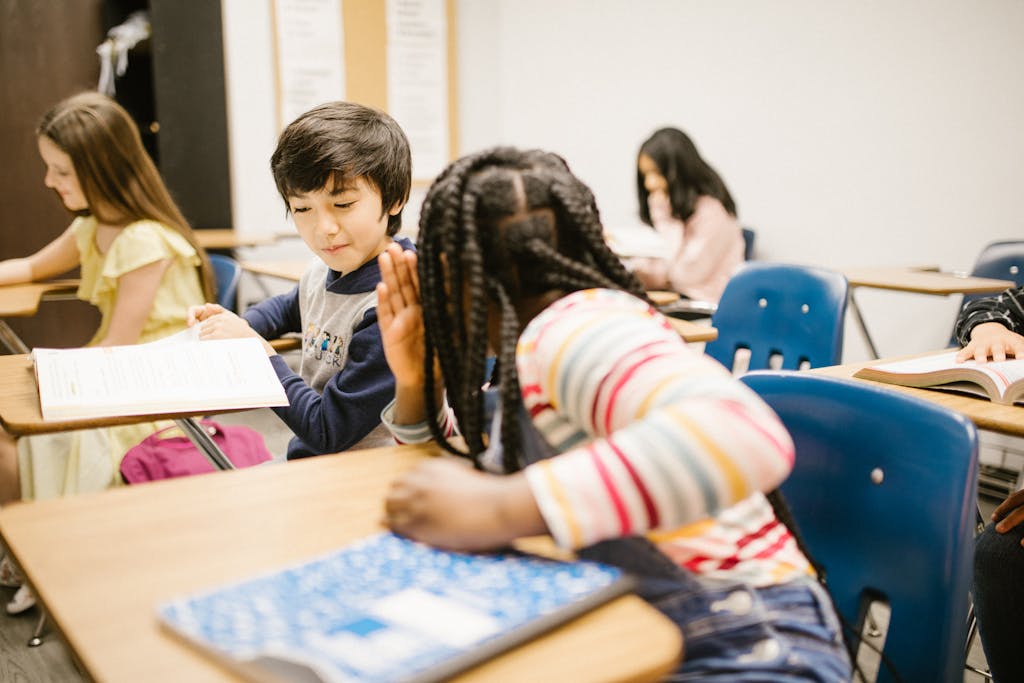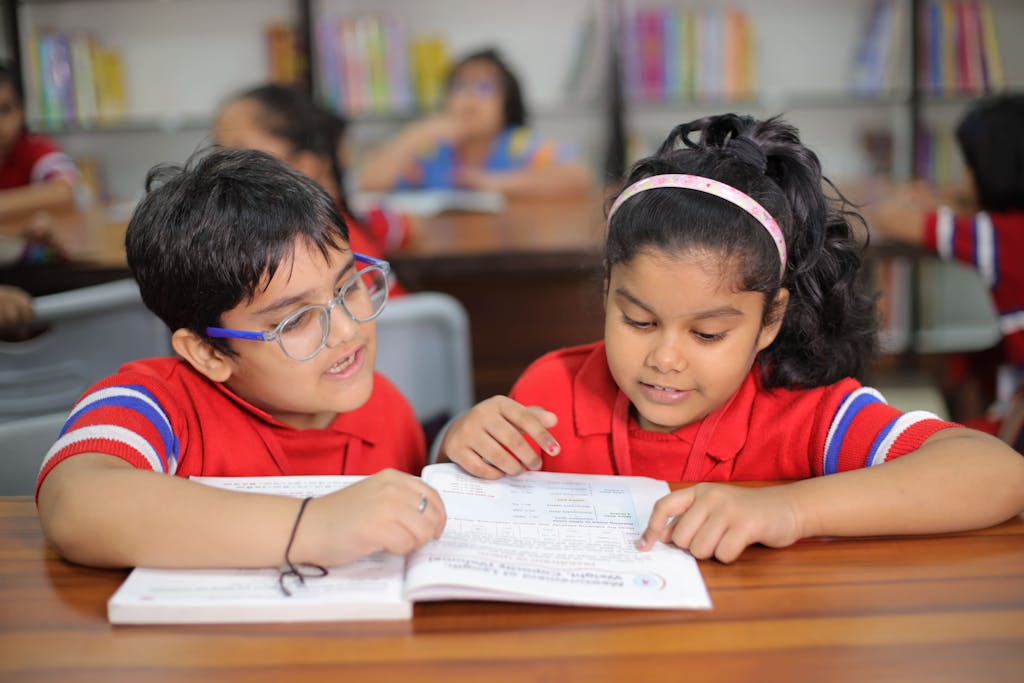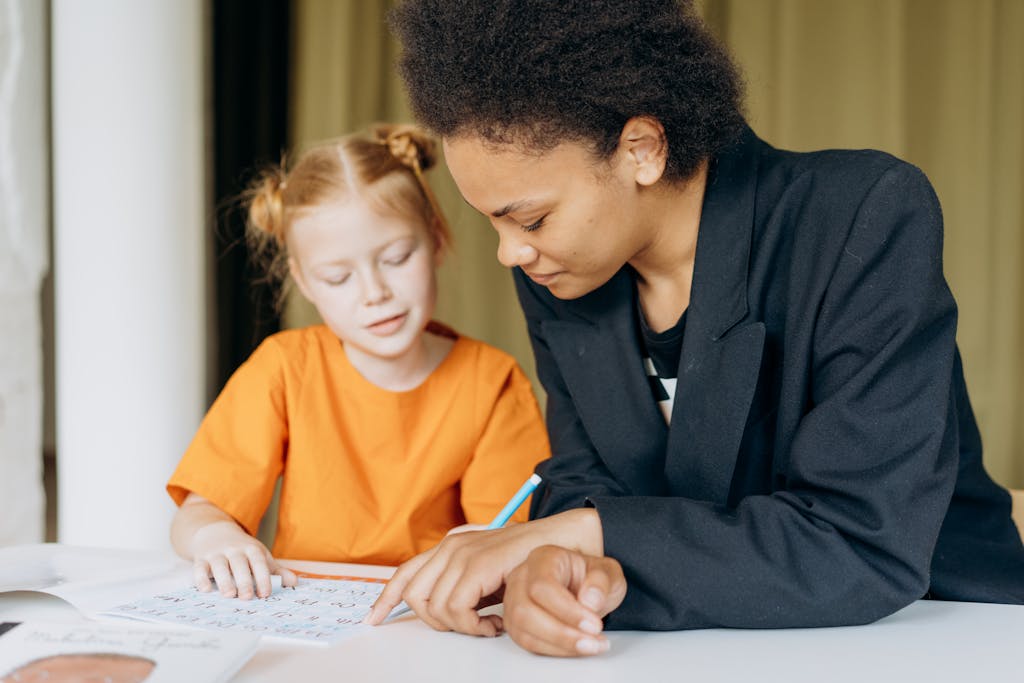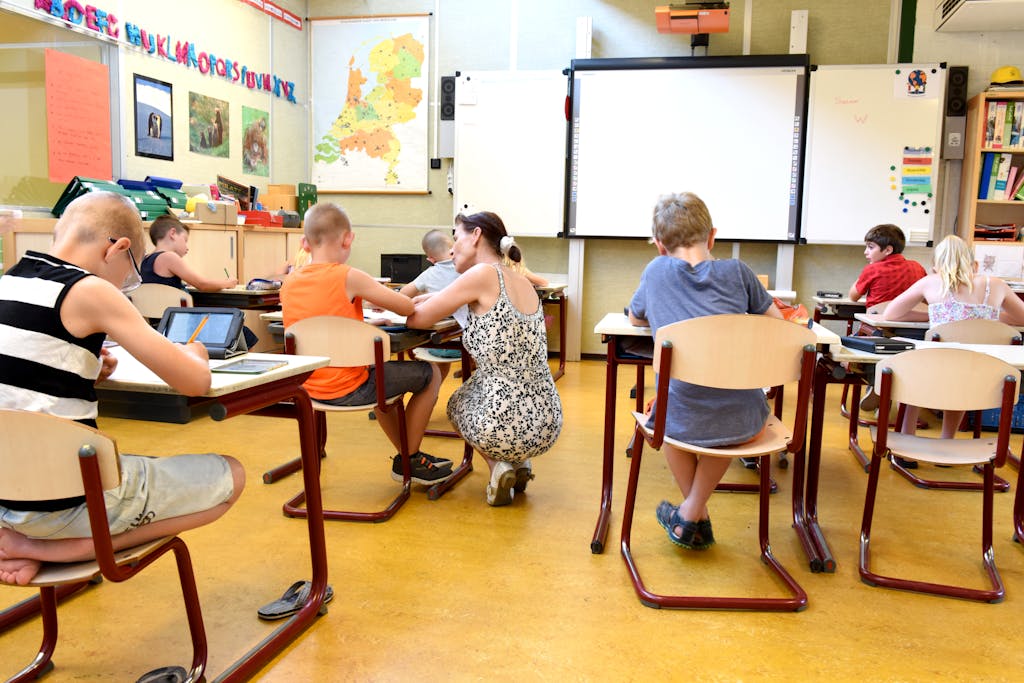The Immediate Effects of Bullying: Recognizing the Signs and Taking Action
Bullying doesn’t just leave scars over time. It starts having an impact the moment it happens. The immediate effects of bullying—including stress, fear, and anxiety—can hit fast and the ripple effects are often stronger than we realize.
Kids who are bullied can experience a sudden drop in self-esteem, have trouble focusing at school, and even change how they interact with others—all in a matter of days or even hours. Recognizing these immediate effects is a key part of bullying prevention.
The tricky part is that these changes can be subtle. That’s why it’s so important for parents, teachers, and caregivers to know what to look for. When adults recognize these early signs, they can take steps to help kids feel safer and more supported right away to lessen the life-long consequences.
Nobody should feel like they have to figure it out alone—especially not kids who are already struggling with the weight of bullying.
Let’s dive into what those immediate effects of bullying look like and, most importantly, how you can step in to make a difference.
Listen to Our Podcast
Emotional Effects of Bullying
One of the first things bullying impacts is a child’s emotional well-being. These changes might not always be obvious, but they can run deep and affect how a child feels about themselves and the world around them.
Kids might start doubting their self-worth, feel isolated, or experience bursts of sadness and anger they can’t explain. It can even alter how they trust others and make them hesitant to form connections or ask for help.
Fear and Anxiety
Kids who are bullied often feel scared to go to school or be around certain peers. They might start making excuses to stay home or avoid places where they’ve been targeted. That fear can take over quickly and leave them feeling trapped and unsure of how to escape it. Anxiety can show up in different ways—like trouble sleeping, sudden mood swings, or physical symptoms such as headaches or stomachaches.
Over time, these feelings of fear and anxiety can become overwhelming. Kids might stop participating in activities they used to love, withdraw from friends, or become hyper-vigilant because they’re always on edge for the next hurtful comment or action.
Sadness and Hopelessness
It’s heartbreaking, but bullying can make kids feel completely alone. They might withdraw from family and friends because they think there’s no way out of their situation.
This sadness can quickly turn into hopelessness if they don’t see things improving. They may begin to feel that no one understands what they’re going through or that their voice doesn’t matter.
Over time, this hopelessness can take a toll on their mental health and lead to feelings of worthlessness or thoughts that they’ll never escape the bullying.
Anger or Frustration
Sometimes kids lash out when they’re feeling helpless. Bullying can make them angry at their situation and that frustration can spill over at home or with friends. They might snap over small things or have outbursts that seem out of character. This anger isn’t just about being upset—it’s a reaction to feeling trapped in a situation they can’t control.
This frustration can also turn them into a bully themselves. They may mimic the behavior they’ve experienced and target others as a way to regain some sense of power. Without realizing it, they might repeat the patterns that hurt them in the first place.
For kids, processing these emotions on their own isn’t easy. They might not have the words to explain what they’re going through, which makes it even more important for adults to pay attention to changes in behavior.
Shame
Many kids blame themselves for being bullied. They might feel embarrassed or think they’ve done something to deserve it. That shame can chip away at their self-esteem and make them feel unworthy of support or help.
Kids dealing with shame often withdraw further, afraid that speaking up will make things worse or bring more attention to their situation.
How You Can Help
Create a safe space to talk: Let your child know they can share anything with you without fear of being judged. Kids are more likely to open up when they feel safe, so remind them that you’re there to listen, not to lecture or criticize.
Validate their emotions: Kids need to know it’s okay to feel scared, sad, or angry about what’s happening. Assure your child that their feelings are valid and that none of this is their fault. Acknowledging their emotions helps them feel understood and supported.
Offer reassurance: Remind your child that they’re not alone and that you’ll work together to make things better. Let them know you’ll do everything you can to help, whether that means talking to their teacher, reaching out for professional support, implementing bully prevention lessons at home, or just being there to listen when they need it.

Physical Effects of Bullying
Bullying doesn’t just impact how kids feel emotionally—it often shows up in their bodies too. The stress and anxiety caused by bullying can trigger a range of physical symptoms that may seem unrelated at first.
In fact, these immediate effects are sometimes the first signs that something’s wrong, especially when kids don’t talk about what they’re going through.
It’s important to recognize that these short-term effects can build over time. What starts as a headache or trouble sleeping can turn into bigger health problems if the bullying continues. That’s why early bully prevention efforts are so important—not just to protect kids emotionally but to safeguard their physical health too.
Health Complaints
When kids experience bullying, the stress often shows up in their bodies through health complaints like headaches, stomach aches, and unexplained fatigue. These short-term effects can appear suddenly even when there’s no clear illness to explain them. If your child frequently complains about feeling sick, especially before school or social activities, it might be their body’s way of reacting to bullying.
Pay attention to when these complaints happen and whether they follow a pattern. Headaches or stomach aches that show up on school days or before specific classes could signal a problem. Kids may not always talk about being bullied, but these physical signs can help you catch the issue early and take steps toward bully prevention before it causes deeper harm.
Sleep Problems
Bullying can take a serious toll on kids’ sleep with anxiety often making it difficult for them to fall asleep or stay asleep through the night. They might lie awake replaying hurtful moments or worrying about what tomorrow will bring. Even if they do fall asleep, nightmares can interrupt their rest and leave them tired and on edge the next day.
Trouble sleeping is one of the most immediate effects of bullying and can quickly affect a child’s overall well-being. When they wake up already feeling anxious or exhausted, it’s harder to face the day, especially if they’re worried about encountering more bullying. Recognizing sleep problems as a warning sign is an important step in bully prevention.
Changes in Appetite
Stress from bullying can quickly disrupt a child’s eating habits. Some kids might turn to food for comfort and eat more than usual to distract themselves from the emotional pain. Others might lose their appetite completely and skip meals or eating very little because they feel too anxious or upset.
These shifts in appetite can happen suddenly and might not have an obvious cause. If you notice your child is eating more or less than usual, especially during stressful times like before school, it could be a sign they’re dealing with bullying.
Visible Injuries
In cases of physical bullying, it can result in visible injuries like bruises, cuts, or scratches. If your child has marks they can’t explain or seems hesitant to talk about how they got hurt, it’s important to take notice. These injuries might seem minor at first, but they could be signs of something more serious happening.
Children experiencing physical bullying may try to hide their injuries out of embarrassment or fear, so pay close attention to changes in how they dress or act. If they start wearing long sleeves in warm weather or seem more withdrawn after school, it’s worth having a conversation.
How You Can Help
Monitor their health: Pay attention to recurring complaints like headaches, stomach aches, or trouble sleeping. These physical signs can be early indicators that something is wrong, especially if they happen more often before school or social activities.
Talk about stress: Help your child understand that stress can affect their body in surprising ways. Let them know it’s okay to feel overwhelmed and encourage them to share what’s bothering them. A supportive conversation can help them feel less alone and more comfortable opening up about bullying.
Seek medical advice if needed: If the physical symptoms persist or worsen, don’t hesitate to reach out to a doctor or counselor. A medical professional can help rule out other causes and offer guidance on managing the immediate effects of bullying. This shows your child that their well-being is a priority and reinforces that help is available.

Social Effects of Bullying
Bullying can take a toll on a child’s social life, often causing them to withdraw from the people and activities that once made them happy. Kids who experience bullying may avoid spending time with friends, skip after-school clubs, or drop out of sports teams they used to enjoy. This sudden shift in behavior can be a sign that something is wrong.
The social effects of bullying can create a painful cycle of isolation. A bullied child might pull away because they’re scared of being judged or rejected, but that isolation can make them feel even more alone. As friendships fade and social connections weaken, their confidence can take a hit which makes it even harder to reach out for help.
Withdrawal from Friends
A child dealing with bullying may start avoiding social situations as a way to protect themselves. This withdrawal can happen suddenly and may seem out of character.
In some cases, kids may even distance themselves from their closest friends out of fear they’ll drag others into their problems. They might worry that their friends will be bullied too or feel embarrassed about what’s happening. While this behavior is often a defense mechanism, it can leave them feeling even more isolated.
Avoidance of Activities
When kids feel unsafe or insecure due to bullying, they may start avoiding hobbies or extracurricular activities they once loved. Sports teams, clubs, or even casual hangouts can suddenly feel uncomfortable if they associate those activities with negative experiences or fear of being targeted.
This avoidance is often a way to protect themselves from further harm, but it can also take away the things that bring them joy and confidence. Over time, stepping back from these activities can impact their self-esteem and social connections which makes them feel even more isolated.
Fear of Speaking Up
Many kids stay silent about bullying because they’re afraid it will make things worse or worry that no one will believe them. They might fear retaliation from the bully or feel embarrassed about what’s happening which makes it hard to ask for help.
This fear of speaking up creates a harmful cycle. When bullying goes unreported, it often continues unchecked which allows the behavior to escalate. Kids need to know that their voice matters and that telling someone about bullying isn’t a sign of weakness—it’s a step toward making it stop.
Impact on Friendships
Bullying doesn’t just affect the child being targeted—it can also impact their friendships. In some cases, friends may pull away to avoid becoming targets themselves. They might worry that standing up for their friend will put them in harm’s way or they may not know how to handle the situation.
This distancing can be deeply hurtful. When friends drift away, the bullied child may feel abandoned at a time when they need support the most. This rejection can make them feel even more isolated which reinforces the emotional toll bullying takes. Strengthening friendships and encouraging empathy among peers can be a powerful part of bully prevention.
How You Can Help
Encourage social connections: Help your child rebuild friendships by arranging playdates, group outings, or other activities in safe, supportive spaces. Positive social interactions can boost their confidence and remind them that they’re not alone.
Talk about their interests: Encourage your child to keep doing the things they love, even if it feels difficult at first. Staying engaged in hobbies or activities can bring a sense of normalcy and joy while also helping them reconnect with others who share their interests.
Reassure them: Remind your child that it’s okay to speak up and share what’s happening. Let them know their feelings matter, their voice is important, and you’re there to help them navigate the situation. Knowing they have someone on their side can make a big difference.

Effects on Academic Performance
Bullying doesn’t stop at the playground—it follows children into the classroom and can have a significant impact on their academic performance. The stress and anxiety caused by bullying can make it difficult for kids to concentrate on their schoolwork, participate in class, or retain new information.
The immediate effects of bullying on academic performance can set kids back in their learning which makes it harder for them to catch up and regain their confidence in the classroom. Recognizing these signs early can help prevent long-term struggles and ensure kids feel supported both emotionally and academically.
Difficulty Concentrating
It’s hard for kids to focus on schoolwork when they’re constantly worried about what might happen next. The anxiety caused by bullying can leave them feeling distracted, restless, or mentally checked out during lessons. They may seem disconnected from what’s happening in the classroom, even in subjects they usually enjoy.
This difficulty concentrating is one of the immediate effects of bullying and can show up as daydreaming, missed assignments, or trouble following instructions. Teachers might mistake it for a lack of effort, but it often stems from the emotional weight the child is carrying.
Avoiding School
When bullying becomes too overwhelming, some kids will do anything to avoid their bully—even if it means skipping school. They might fake being sick, complain about vague health issues, or find reasons to stay home. Others may go to school but avoid certain classes where they’re more likely to encounter the bully.
These behaviors are more than just avoidance—they’re often a way to cope with situations that feel unsafe and out of their control.
Skipping school or specific classes can quickly impact a child’s academic performance. Missed lessons make it harder to keep up and over time, avoiding school can also weaken social connections.
Declining Grades
Stress from bullying can make it hard for kids to do their best work in school. When they’re anxious or distracted, their ability to focus, complete assignments, and remember information takes a hit. Skipping classes or zoning out during lessons only adds to the problem.
As their grades start to slip, kids may feel even worse about themselves. Lower academic performance can hurt their confidence and create a cycle of frustration and self-doubt. They might stop trying altogether because they believe they’re no longer capable of succeeding.
Recognizing declining grades as a potential sign of bullying is crucial for getting kids the help they need before the academic impact becomes long-term.
How You Can Help
Check in regularly: Ask your child how they’re feeling about school and if they’re struggling to keep up with assignments or lessons. Creating an open line of communication makes it easier for them to share concerns before things get worse.
Work with teachers: Keep in touch with your child’s teachers to stay updated on any changes in behavior, attendance, or performance. Teachers are often the first to notice when a student is having trouble and working together can help catch issues early.
Offer academic support: If your child is falling behind, consider options like tutoring or extra study sessions. Even small steps can help remind them they’re capable of succeeding despite the challenges they’re facing.

Recognizing the Early Signs of Bullying and Taking Action
The immediate effects of bullying can appear in different areas of a child’s life—emotionally, physically, socially, and academically. Kids may seem anxious or withdrawn, complain of unexplained health issues, avoid friends or activities, or struggle with schoolwork. These short-term effects are often overlooked, but recognizing them early is a crucial part of bully prevention.
When we understand what to watch for, we can step in before the bullying causes lasting harm.
Whether it’s having regular conversations, working with teachers, or providing emotional and academic support, taking action shows kids that they’re not alone—and that help is always available.
We also offer effective bullying prevention lesson plans that parents and teachers can use to help guide these important conversations. Every step we take to address bullying makes a difference in helping kids feel safe, valued, and heard.
Signs to Watch For
Bullying can affect kids in many ways and the signs aren’t always easy to spot. Here are some key behaviors to watch for:
- Sudden mood changes, like increased sadness or anger
- Frequent complaints of illness or trouble sleeping
- Withdrawal from friends or activities they used to enjoy
- A drop in academic performance such as lower grades or missing assignments
These short-term effects can show up quickly and have lasting consequences if left unaddressed. Recognizing these signs early is essential to providing the right support and preventing further harm.
How You Can Help
Create a safe space to talk: Let your child know they can share their thoughts and feelings without fear of judgment. Encourage open conversations by listening without interrupting and showing empathy. Our bullying prevention lessons are designed to spark these conversations and help kids feel more comfortable discussing their experiences.
Validate their experience: Reassure your child that what they’re feeling is normal and that they’re not to blame for the bullying. Let them know it’s okay to feel scared, sad, or angry and remind them that no one deserves to be treated poorly. Validation helps them feel heard and understood which can ease their emotional burden.
Work with school staff: Keep teachers, counselors, and school administrators informed about what’s happening. Collaborate on a plan to address the bullying and ensure your child feels safe at school. This might include monitoring specific areas, providing a trusted adult for your child to talk to, or adjusting class routines. Working together shows your child that they’re supported by both family and educators.

Final Thoughts: Recognizing the Immediate Effects of Bullying Makes a Difference
The immediate effects of bullying can impact kids in ways that aren’t always obvious at first. Mood swings, health complaints, social withdrawal, and declining grades are just some of the immediate signs that something is wrong. By recognizing these early warning signs and taking action, you can help your child feel supported and ready to heal.
Bully prevention is about more than stopping harmful behavior—it’s about building an environment where kids feel empowered to speak up, connect with others, and move forward with confidence. When kids know they have support, it can make a lasting difference in their emotional well-being.
For more tools and strategies, explore our weekly online bullying prevention course. Our lessons help parents, teachers, and kids work together to create a safer, more supportive world—one conversation at a time.